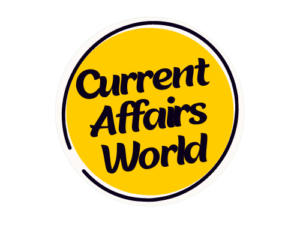1. Which Indian state launched the “Green Energy Corridor Phase-II” on January 17, 2025?
a) Rajasthan
b) Gujarat
c) Tamil Nadu
d) Maharashtra
Show Answer
Correct answer: b) Gujarat
Notes: Gujarat unveiled the second phase of the “Green Energy Corridor” to boost renewable energy integration into the power grid. This project aims to facilitate efficient transmission of solar and wind energy, promoting the state’s commitment to sustainable energy solutions. It is expected to support India’s goal of achieving 50% non-fossil fuel energy capacity by 2030.
2. What major international treaty was signed on January 17, 2025, to address rising global humanitarian crises?
a) Global Refugee Assistance Treaty
b) Climate Migration Accord
c) Humanitarian Aid and Development Pact
d) International Disaster Relief Framework
Show Answer
Correct answer: c) Humanitarian Aid and Development Pact
Notes: The “Humanitarian Aid and Development Pact” was signed by over 80 countries to improve response mechanisms for global crises, including conflicts, displacement, and natural disasters. It emphasizes collaborative funding, streamlined aid delivery, and long-term resilience-building strategies. This pact is a significant step towards addressing the escalating humanitarian challenges of the modern era.
3. Which Indian ministry introduced the “Digital Skilling for Women 2025” program on January 18, 2025?
a) Ministry of Women and Child Development
b) Ministry of Education
c) Ministry of Electronics and IT
d) Ministry of Labour and Employment
Show Answer
Correct answer: c) Ministry of Electronics and IT
Notes: The “Digital Skilling for Women 2025” program is a government initiative to empower women with advanced IT skills. The program includes training in artificial intelligence, data analytics, and cybersecurity. By addressing gender disparities in the tech industry, this initiative aims to enhance women’s employability and economic independence.
4. Which international organization released the “State of Global Hunger Report 2025” on January 18, 2025?
a) United Nations
b) World Food Programme
c) FAO
d) UNICEF
Show Answer
Correct answer: b) World Food Programme
Notes: The “State of Global Hunger Report 2025” by the World Food Programme highlights an alarming rise in food insecurity due to climate change and geopolitical conflicts. The report calls for coordinated international action to improve agricultural resilience and enhance food distribution mechanisms.
5. Which Indian startup announced a breakthrough in quantum computing technology on January 18, 2025?
a) Qubitix
b) TechnoAI
c) Innovatech
d) QuantumLeap
Show Answer
Correct answer: d) QuantumLeap
Notes: QuantumLeap, an Indian startup, unveiled a quantum processor capable of solving complex computations faster than traditional supercomputers. This milestone highlights India’s growing prowess in quantum technology and its potential applications in cryptography, materials science, and artificial intelligence.
6. Which country hosted the 2025 Global Economic Forum on January 17, 2025?
a) USA
b) Switzerland
c) Germany
d) Singapore
Show Answer
Correct answer: b) Switzerland
Notes: Switzerland hosted the 2025 Global Economic Forum, which discussed the global economic outlook, digital trade, and climate financing. The forum emphasized sustainable economic recovery post-pandemic and adapting to challenges posed by the Fourth Industrial Revolution.
7. What cultural event was recognized by UNESCO on January 17, 2025?
a) Kumbh Mela
b) Onam
c) Hornbill Festival
d) Pushkar Camel Fair
Show Answer
Correct answer: c) Hornbill Festival
Notes: UNESCO recognized Nagaland’s Hornbill Festival as an Intangible Cultural Heritage, acknowledging its role in promoting tribal culture and biodiversity awareness. This recognition highlights India’s cultural diversity and encourages tourism to the Northeastern region.
8. Which country announced a historic ban on single-use plastics effective January 18, 2025?
a) Canada
b) France
c) Australia
d) UK
Show Answer
Correct answer: a) Canada
Notes: Canada enforced a nationwide ban on single-use plastics to combat environmental pollution. The ban covers items like plastic bags, straws, and cutlery. This policy is a significant step towards reducing plastic waste and promoting sustainable alternatives globally.
Related




